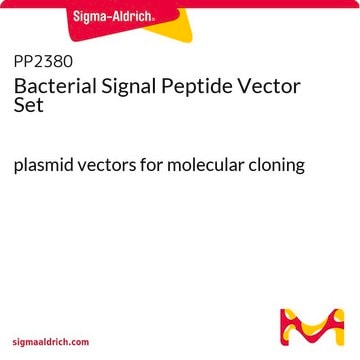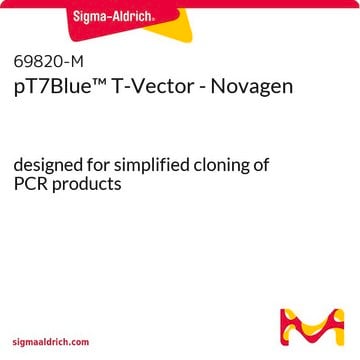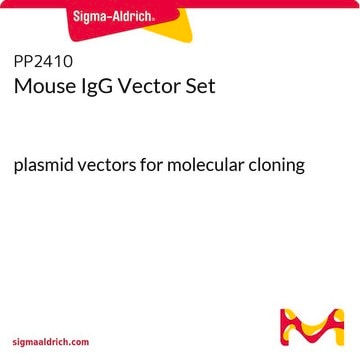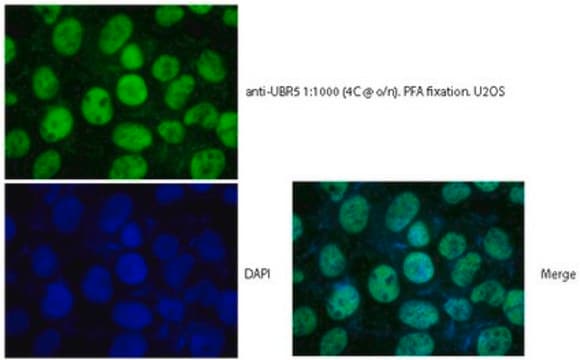OGS3162
PSF-OXB20-NH2-PHOA - PHOA SECRETION PLASMID
plasmid vector for molecular cloning
Sinónimos:
cloning vector, expression vector, molecular cloning vector, plasmid, plasmid vector, snapfast vector, vector
About This Item
Productos recomendados
recombinant
expressed in E. coli
form
buffered aqueous solution
mol wt
size 3911 bp
bacteria selection
kanamycin
origin of replication
pUC (500 copies)
peptide cleavage
no cleavage
peptide tag location
N-terminal
promoter
Promoter name: OXB20
Promoter activity: constitutive
Promoter type: bacterial
reporter gene
none
secretion signal
PhoA
shipped in
ambient
storage temp.
−20°C
General description
About the Peptide Tag:This plasmid contains an PhoA secretory signal peptide (SP) to allow proteins to be exported from the cytosol. During translocation from the cytosol the signal peptide is removed from the protein by endogenous proteases. .
Promoter Expression Level: This plasmid contains a constitutive bacterial promoter that does not require induction. It is the strongest bacterial promoter we sell and this can cause solubility and expression problems with some proteins. We also offer a range of other bacterial promoters that are compatible with this plasmid and are available on request.
Sequence
Analysis Note
related product
Storage Class
12 - Non Combustible Liquids
flash_point_f
Not applicable
flash_point_c
Not applicable
Elija entre una de las versiones más recientes:
Certificados de análisis (COA)
Lo sentimos, en este momento no disponemos de COAs para este producto en línea.
Si necesita más asistencia, póngase en contacto con Atención al cliente
¿Ya tiene este producto?
Encuentre la documentación para los productos que ha comprado recientemente en la Biblioteca de documentos.
Nuestro equipo de científicos tiene experiencia en todas las áreas de investigación: Ciencias de la vida, Ciencia de los materiales, Síntesis química, Cromatografía, Analítica y muchas otras.
Póngase en contacto con el Servicio técnico







